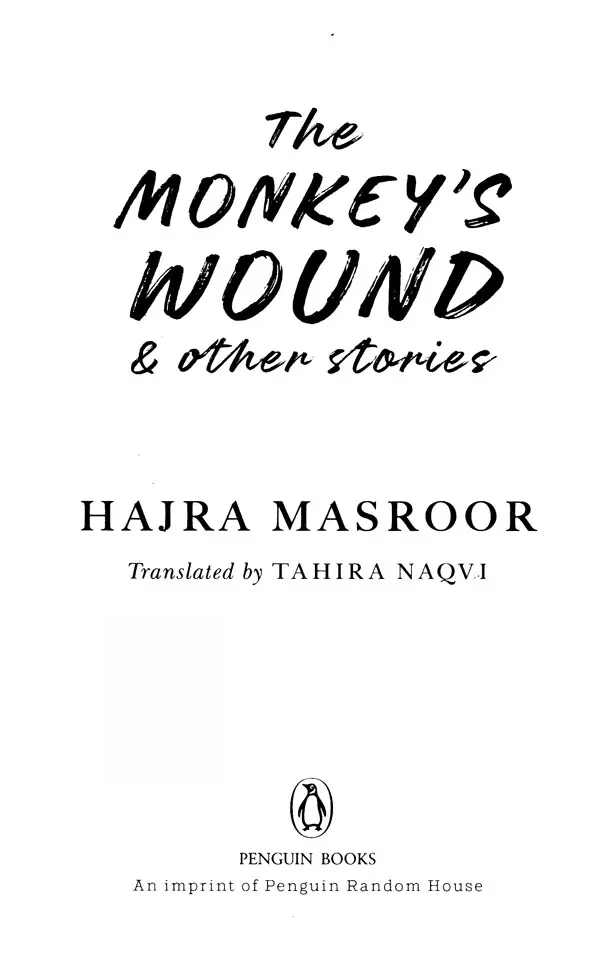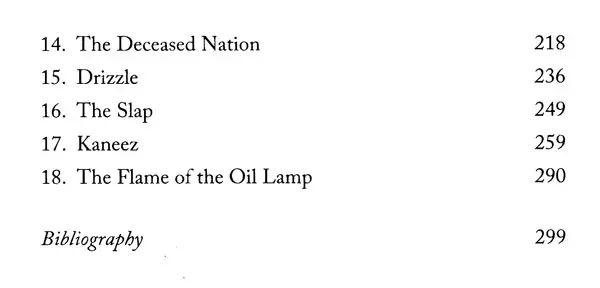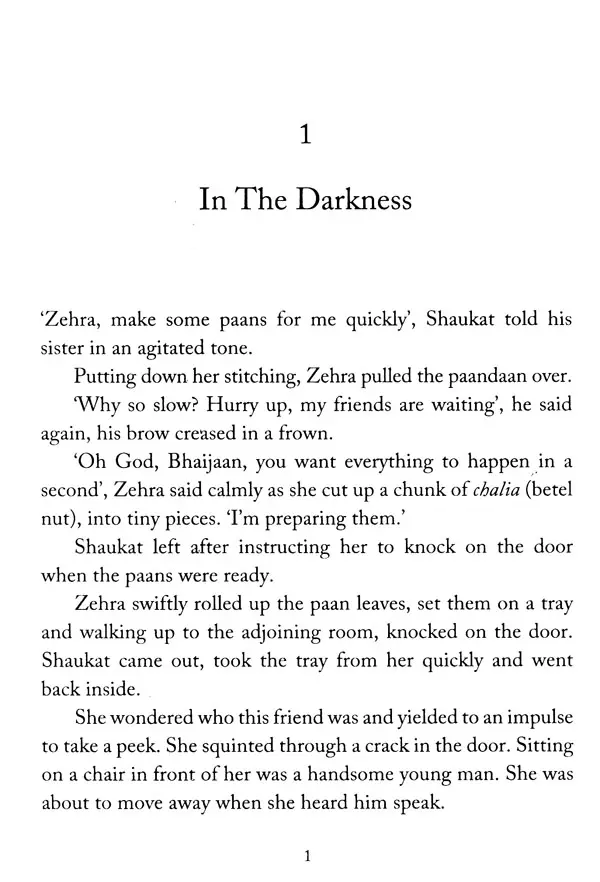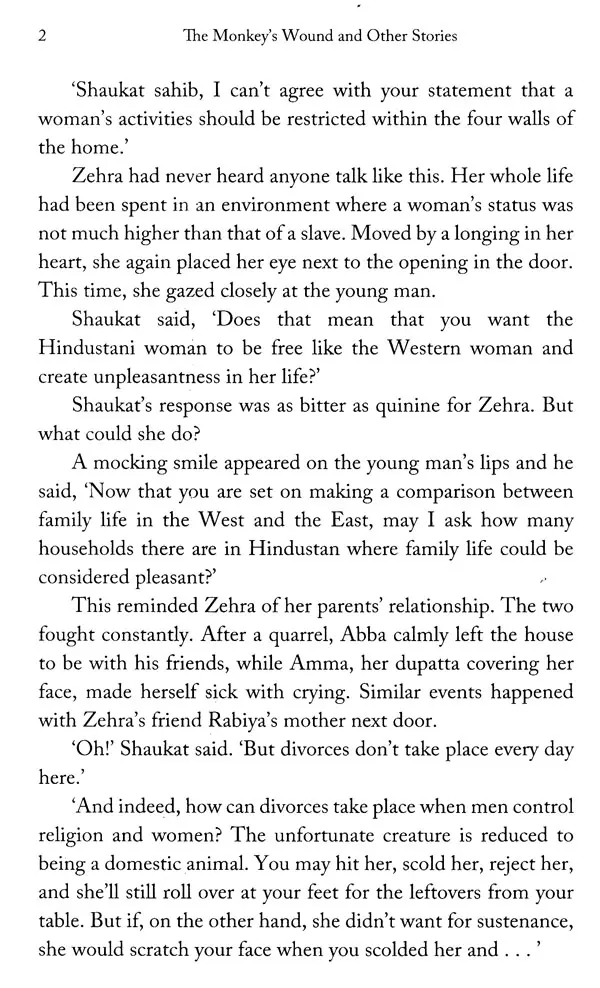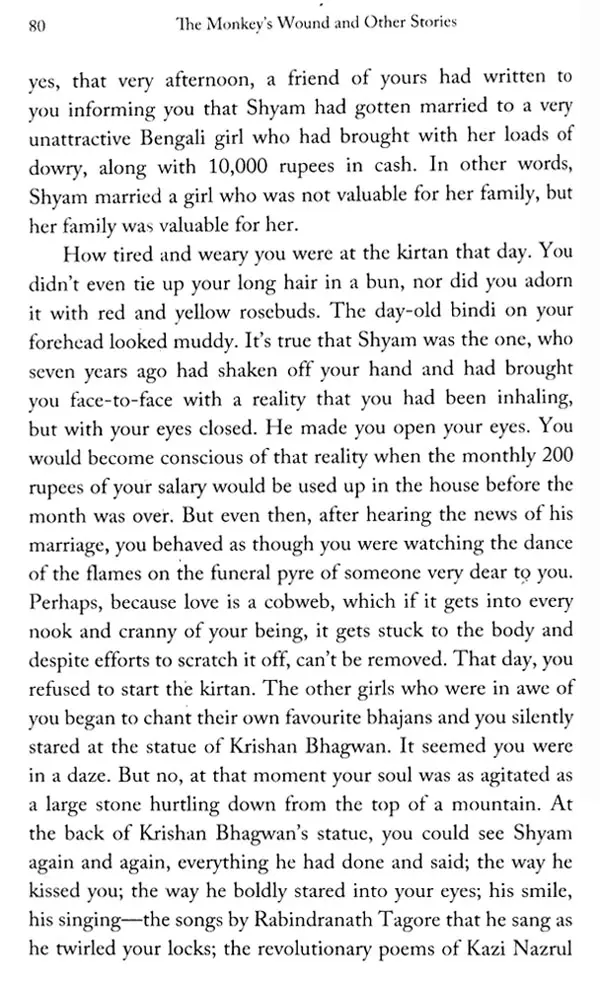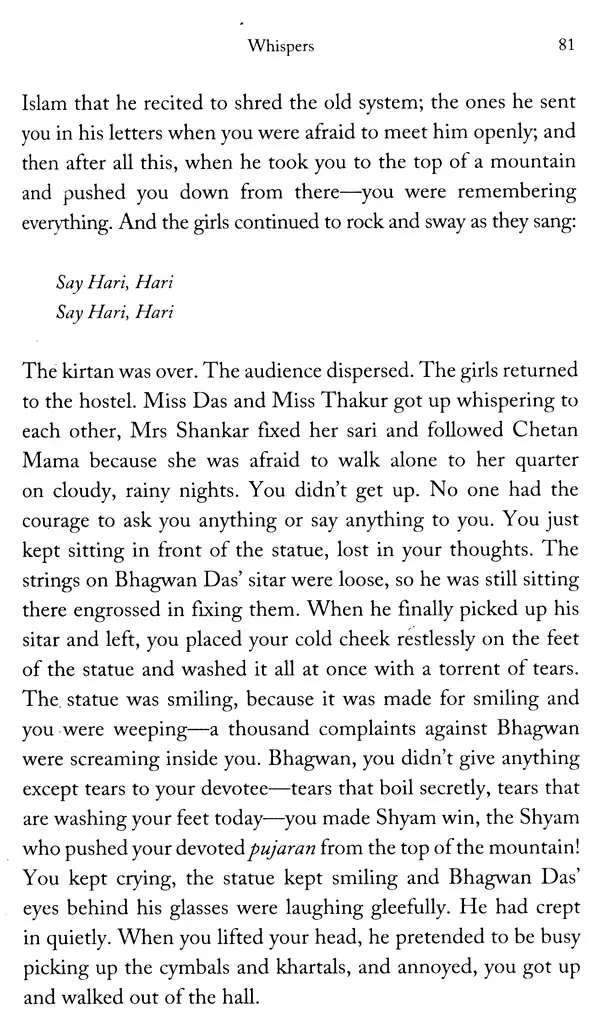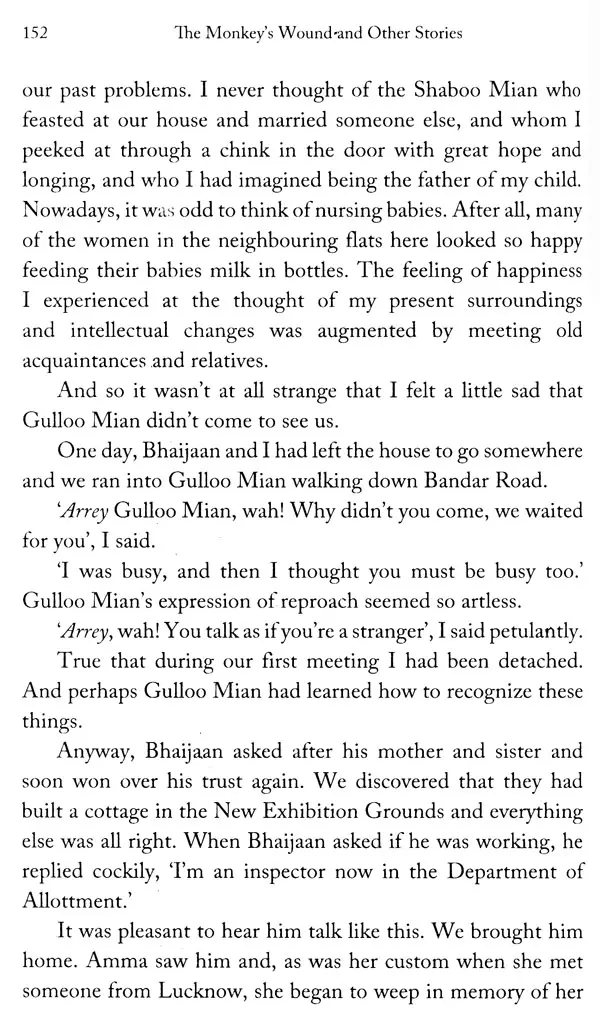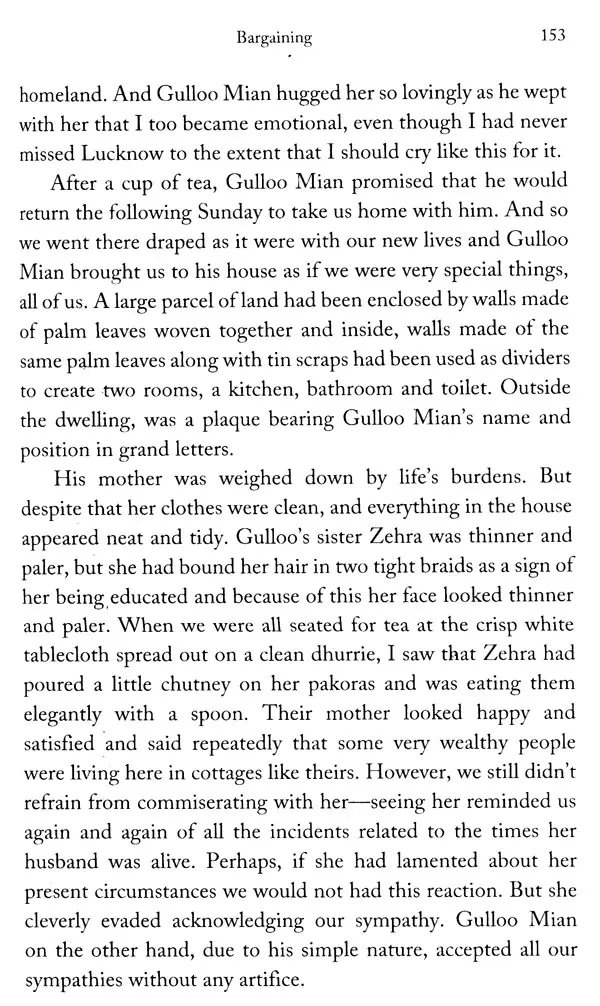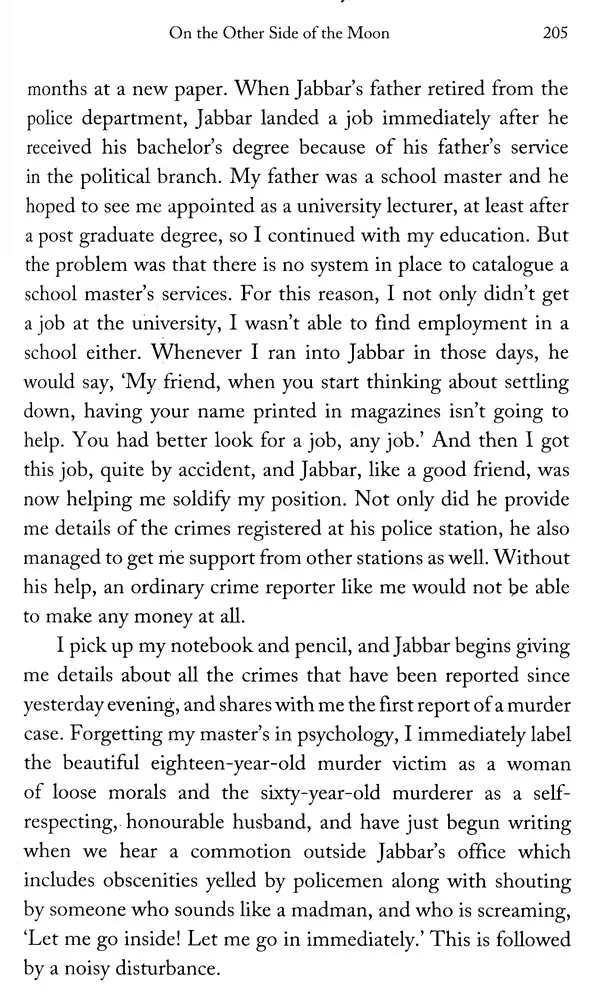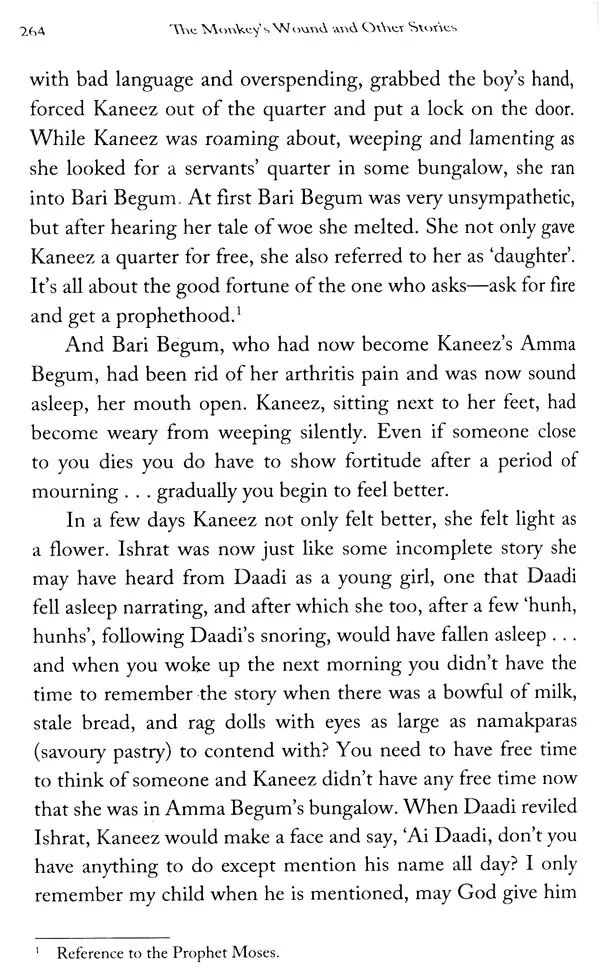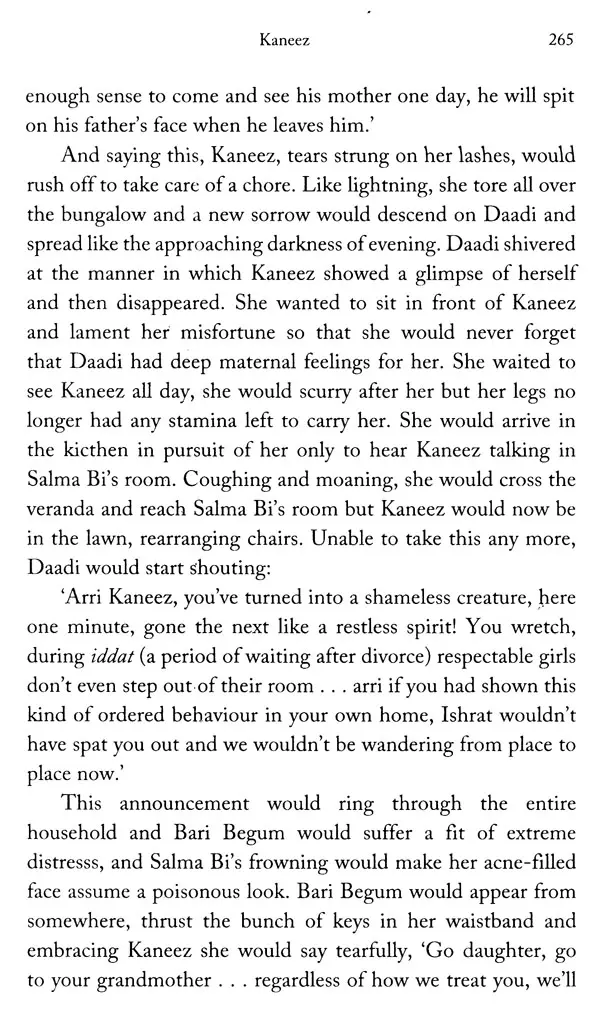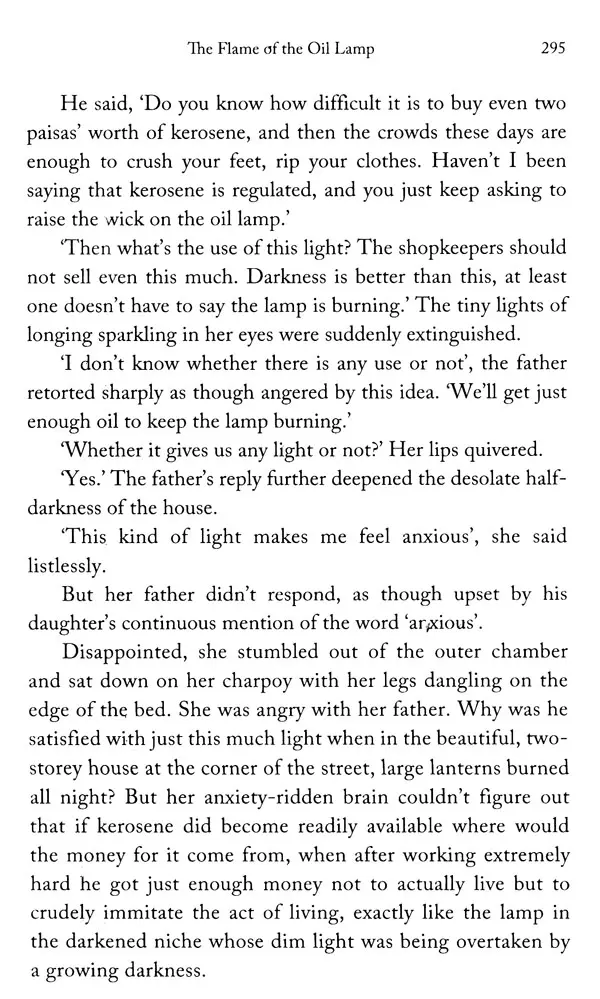
The Monkey's Wound & Other Stories
Book Specification
| Item Code: | UBE720 |
| Author: | Hajra Masroor |
| Publisher: | Penguin Random House India Pvt. Ltd. |
| Language: | English |
| Edition: | 2022 |
| ISBN: | 9780670096114 |
| Pages: | 308 |
| Cover: | HARDCOVER |
| Other Details | 9.00 X 6.00 inch |
| Weight | 450 gm |
Book Description
TAHIRA NAQVI is a translator, writer and clinical professor in the Department of Middle Eastern and Islamic Studies at New York University where she teaches Urdu language and literature. She has translated into English the works of Saadat Hasan Manto, Khadija Mastur, Hajra Masroor and the major works of Ismat Chughtai.
children's magazines they read whatever they could lay their hands on. Our parents subscribed to nearly all the important literary religious and some of the women's magazines that were being publubed in these days. I read everything regardless of whether 1 understood it all er not. The same was true of newspapers. This is about the time when the flames of WWII had reached the borders of Hindustan and political unrest bad slowly begun to turn into public disturbances. One day I thought I should write something and I wrote a few sentences in a romantic vein. My first piece of prose was about the blue sky, pigeons flying bigb and colorful kites and it ended with the question: Do planes dropping bombs have the right to pass through these blue, peaceful skies? Signing with a friend's name, I sent this narrative to a and it was published more prominently than needed on the first page of the newspaper. I showed this to [my sister] Khadija and she was so happy one would think we had both stumbled upon a hidden treasure. Our elders, however, never came to know of this bold step I had taken.
**Contents and Sample Pages**
